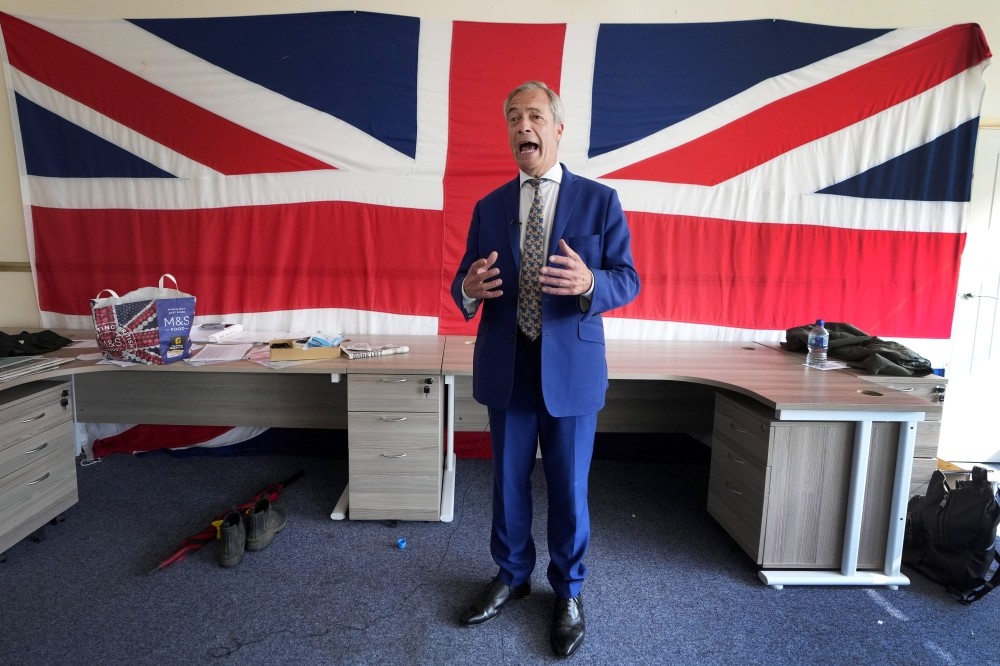26/06/2024
26/06/2024

CLACTON-ON-SEA, England (AP): Dorothy Carr is fed up with how things are run in her hometown. It’s impossible to get a doctor's appointment through Britain's state-run health care system. Local buses have been canceled. There isn’t enough public housing.
Like many others in Clacton-on-Sea - a town on England's southeast coast where many older, white voters used to staunchly support the governing Conservatives - the retiree feels a deep sense of disillusionment with the party. Instead, Carr says she is probably voting for the populist Reform UK party in next week's national election because she agrees with its core message: Record immigration has damaged Britain.
"This country’s getting to be a joke, a complete joke,” Carr said as she looked out to the sea from Clacton beach. "Nothing’s like it used to be. There’s just too many people. We can’t handle it.”
Britain is going to the polls to elect a new House of Commons at a time when public dissatisfaction is running high over a host of issues, from the high cost of living and a stagnating economy to a dysfunctional state health care system and crumbling infrastructure. That disillusionment has given the opposition Labour Party a significant lead in the polls - but it has also given oxygen to Reform and its leader Nigel Farage, who is drawing growing numbers of Conservative voters with his pledge to "take our country back."
Opponents have long accused Farage of fanning racist attitudes toward migrants and condemned what they call his scapegoat rhetoric. They argue that chronic underfunding of schools, hospitals and housing under successive governments on both left and right - particularly in poorer areas like Clacton - is the real problem, not migrants.
But many share Carr's views in Clacton, which recorded one of England’s highest votes to leave the European Union during the 2016 Brexit referendum, when a key promise of the campaign to exit the bloc was that it would give the UK more control over its borders. But immigration figures have gone up, not down, post-Brexit.


